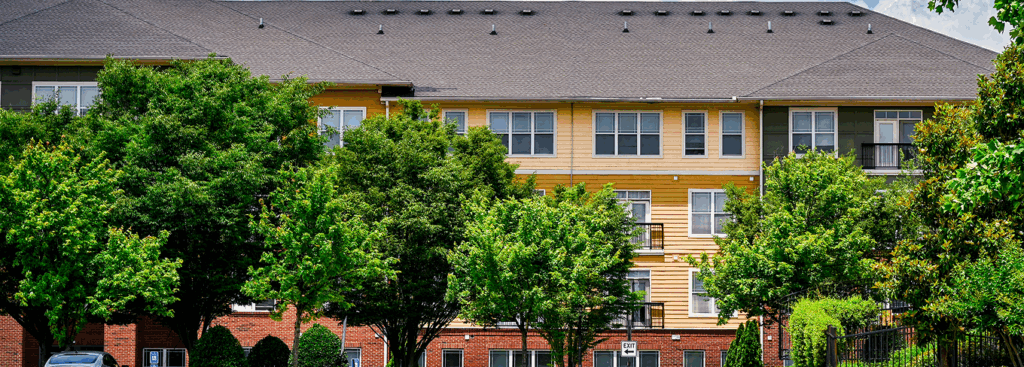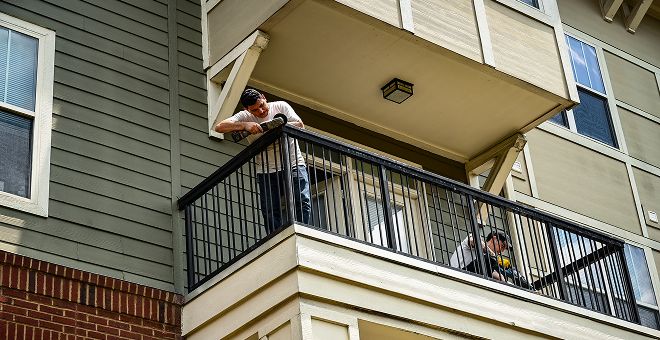Whether you manage apartment communities, oversee public housing, or invest in multifamily properties, you’ve likely come across the Department of HUD — but what does it really do? And why does it matter so much to your funding, compliance, and day-to-day operations?
In this guide, you’ll learn exactly what the Department of HUD is, how it affects property owners and managers, and how to protect your properties by staying compliant — with help from trusted experts who know HUD inside and out.

What Is the Department of HUD?
The Department of HUD, short for the U.S. Department of Housing and Urban Development, is the federal agency responsible for national policies and programs that address America’s housing needs. Established in 1965, HUD works to create strong, sustainable, inclusive communities and quality affordable homes for all.
The History of the Department of HUD
The Department of HUD was created during the Civil Rights era to address widespread housing discrimination, unsafe living conditions, and unequal access to housing opportunities. Over time, HUD’s mission has grown to include:
- Supporting affordable housing development
- Managing housing assistance programs like Public Housing and Section 8
- Enforcing fair housing laws
- Overseeing the physical condition of federally assisted housing
🔗 For more about HUD’s history, visit the HUD Official Website.
What Does the Department of HUD Do?
Today, the Department of HUD provides funding, sets standards, and ensures housing quality for millions of Americans — especially low-income families, seniors, and people with disabilities. HUD partners with local housing authorities, property owners, and developers to make safe, affordable housing a reality.
Key responsibilities include:
- Allocating grants for affordable housing development
- Managing rental assistance programs like the Housing Choice Voucher (HCV) Program (Section 8)
- Inspecting properties to make sure they meet safety standards
- Enforcing fair housing laws to prevent discrimination

Key Programs Managed by the Department of HUD
Understanding HUD means knowing its core programs — and how they shape your day-to-day operations as a property owner or manager.
Public Housing & Section 8 Programs
HUD funds local housing authorities that manage public housing units for low-income families. The Housing Choice Voucher (HCV) Program, also known as Section 8, provides rental assistance for tenants living in privately owned housing.
Property owners who accept Section 8 vouchers must keep units in safe, decent condition — or risk failing inspections and losing funding.
HUD Inspections and NSPIRE Standards
One of HUD’s biggest jobs is ensuring properties meet national health and safety standards. For years, the Uniform Physical Condition Standards (UPCS) and Housing Quality Standards (HQS) set the bar for inspections.
Now, HUD is rolling out NSPIRE Standards — the new National Standards for the Physical Inspection of Real Estate. NSPIRE modernizes the process with clearer scoring, updated deficiency categories, and a stronger focus on resident health and safety.
🔗 Want to learn more? Visit the HUD NSPIRE Page.
Affordable Housing Development & Grants
HUD also distributes billions in grants each year to develop and maintain affordable housing, address homelessness, and revitalize struggling communities. If you’re a developer or investor, HUD programs can be a major source of funding — but they come with strict compliance requirements.

How the Department of HUD Impacts Property Owners and Managers
HUD’s policies shape how you run your properties — whether you’re a public housing authority, a private manager, or an investor with a mixed portfolio.
Funding & Compliance Requirements
When you accept HUD funding, you agree to follow the rules: regular inspections, maintenance standards, fair housing practices, and timely deficiency corrections. Falling short means risking:
- Failed inspections
- Lost funding or rental subsidies
- Negative reputational impact
- Costly emergency repairs and re-inspections
Why HUD Inspections Matter for Your Properties
HUD inspections check whether your units are safe, sanitary, and fully functional. Under NSPIRE Standards, the bar is higher — and the penalties for non-compliance can be steep.
Want to see how an inspection works? Here’s a guide on What is a HUD Inspection Like?.
Risks of Non-Compliance with HUD Standards
Ignoring or delaying repairs can quickly shift small fixes into large capital expenditures (CapEx). Poor maintenance can also lead to low scores, funding cuts, or even lawsuits.
It’s always cheaper to stay ahead — and you can see how planning makes a difference in our CapEx vs OpEx breakdown.
The Department of HUD and NSPIRE Inspections
HUD’s new NSPIRE model aims to simplify and strengthen inspections across all programs — but it also means you need to be prepared.
How NSPIRE Standards Modernize HUD Inspections
NSPIRE focuses on:
✅ Resident health and safety
✅ Clear scoring: properties are rated on a 0–100 scale
✅ Defined correction windows: 24 hours for life-threatening issues, 30 days for severe issues
✅ Ongoing updates every three years
🔗 Read the official details in the Federal Register NSPIRE Final Rule.
Life-Threatening vs. Severe Deficiencies
Under NSPIRE, there’s no ambiguity:
- Broken smoke detectors, blocked exits, or electrical hazards? Fix them within 24 hours.
- Mold, pests, or structural damage? 30 days.
Failing to meet these timelines can mean re-inspections, fines, or withheld funding.
Using a Pre-NSPIRE Inspection to Pass the First Time
Smart property managers don’t wait for surprises. A Pre-NSPIRE Inspection identifies deficiencies ahead of time — giving you a clear plan to fix them before HUD shows up.
Combine that with our Free NSPIRE Checklist and you’ll be ready to pass the first time.

How to Stay Compliant with the Department of HUD
A few proactive steps can protect your funding and your reputation.
Tips for Year-Round Property Maintenance
- Keep maintenance logs updated
- Respond to work orders promptly
- Document all repairs with photos
- Train staff on HUD’s new NSPIRE Standards
Download the Free NSPIRE Checklist
Want a simple way to get started? Use our Free NSPIRE Checklist to see what HUD inspectors will look for — and how to catch small issues before they become big problems.
Local Laws & Apartment Inspection Laws
Remember: HUD standards don’t replace local codes — they add to them. Always follow city and state rules for safety, accessibility, and resident rights. For more, see our guide on Apartment Inspection Laws.

Why Partner with NSPIRE Experts for HUD Compliance
Staying compliant isn’t just about avoiding fines — it’s about protecting your tenants, your funding, and your reputation. That’s where NSPIRE Experts comes in.
Nationwide Teams with HUD Experience
Our teams work with public housing authorities, private managers, and investors nationwide. We know HUD rules inside and out — and we help you navigate them with confidence.
Fast Turnaround & Onsite Support
From pre-inspections to onsite repairs and day-of shadowing, we help you pass your inspections the first time.
Get a Free Quote for HUD Inspection Prep
Don’t wait for an inspection notice to scramble. 📞 Get a Free Quote today to see how we can help you stay compliant.

Keep Up with the Department of HUD and Protect Your Funding
The Department of HUD plays a huge role in the success of your properties. When you stay informed, plan ahead, and partner with the right experts, you’ll keep your funding secure and your tenants safe.
✅ Get a Free Quote
✅ Download the Free NSPIRE Checklist
✅ Learn more at HUD.gov
